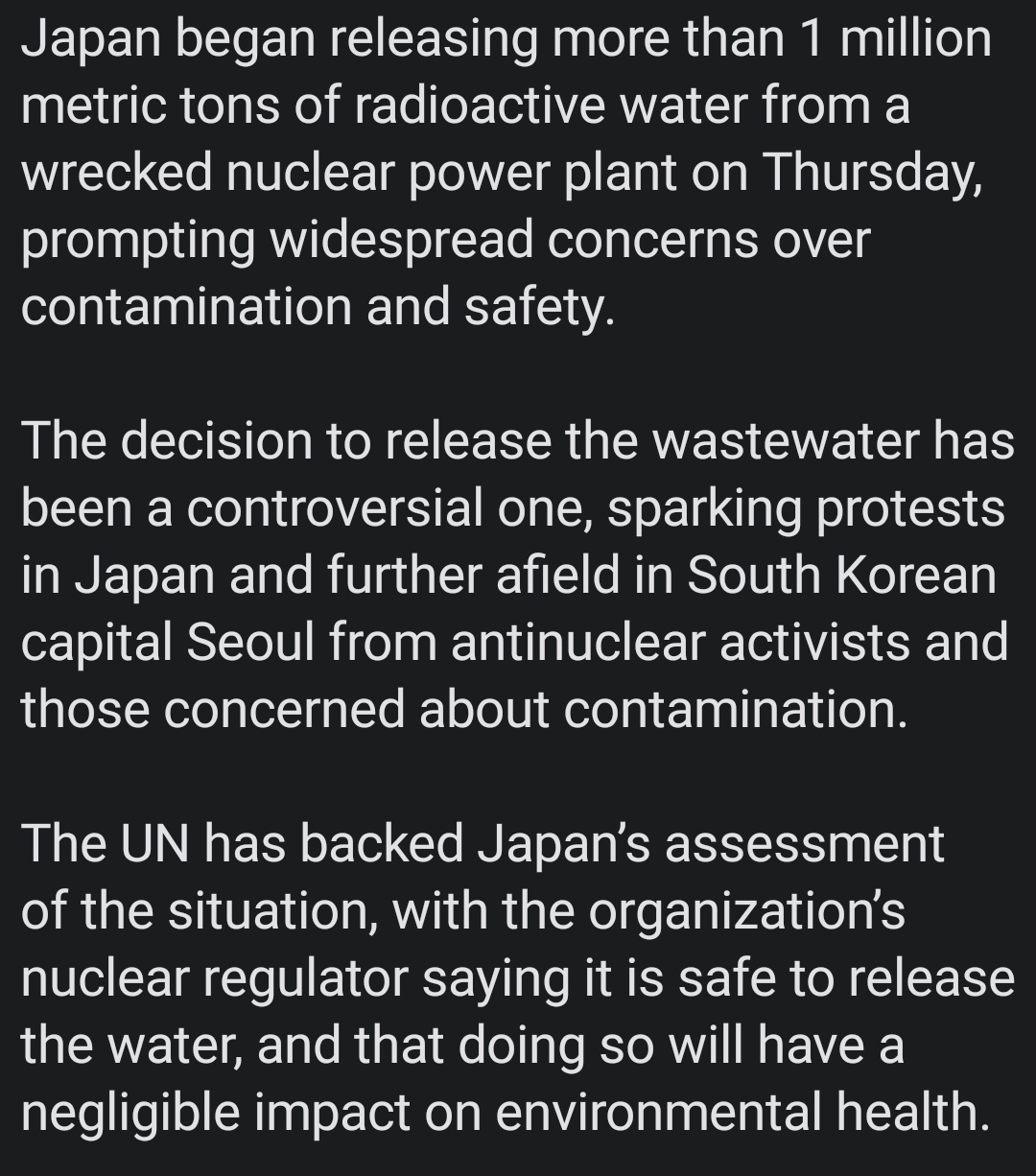No for real it is negligible.
The thing about radiation is that the dosage is what matters so having all that tritium in one water tank is bad because it’s concentrated but very slowly leaking it into the ocean where it’s diluted so rapidly you won’t be able to detect it is truly harmless.
Anger at this is misguided. It’s the correct decision. Holding the stuff concentrated in one place is an ecological disaster waiting to happen - let’s say another tsunami hits and it all gets released at one now that’s a problem but sending an actually small volume into the ocean everyday that’s not even going to register as background noise.

